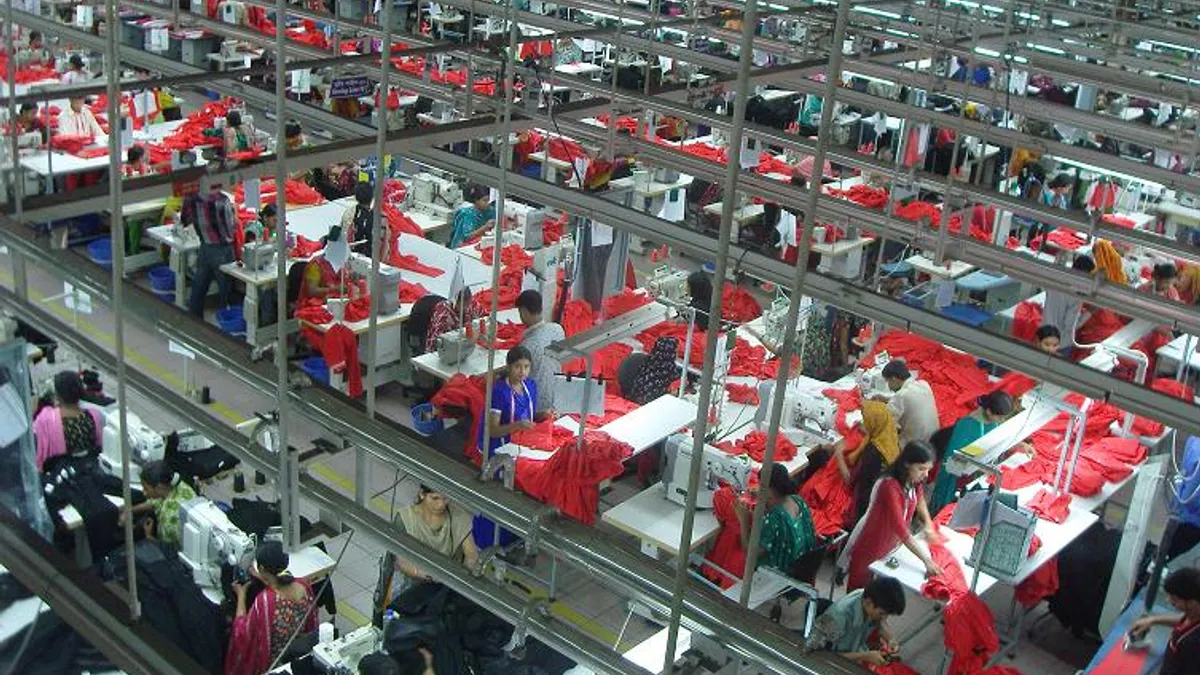Dive Brief:
- The Bangladesh Accord on Fire and Building Safety has reached a deal with the Bangladesh Garment Manufacturers and Exporters Association (BGMEA) that has been approved by a court in Bangladesh. Through the deal, the Accord will function as usual for 281 days before transitioning operations to the newly formed Ready-Made Garments Sustainability Council (RSC), according to a press release. The Accord was formed in the wake of a 2013 tragedy wherein the Rana Plaza building collapsed and killed 1,133 workers and critically injured thousands more.
- Some union members worry this new agreement will put too much power in the hands of factory owners and result in more of the safety issues the Accord was initially created to avoid, according to Reuters.
- "This deal is sure to compromise the safety and security of garment workers given there will be no independent decision-making by the Accord," Babul Akter, president of the Bangladesh Garment and Industrial Workers Federation, told Reuters. "This was framed without any discussion with labour unions."
Dive Insight:
Rana Plaza contained multiple factories that produced clothing for companies such as Walmart, the Dutch retailer C & A, Benetton and Cato Fashions, according to The New York Times. More than 220 companies signed on to the Accord after the accident to help improve workplace safety for garment workers in the country.
Current signatories to the Accord agreement include businesses like American Eagle, H&M and Aldi. These companies can benefit from an organization like Accord as it gives them peace of mind that these factories are undergoing a rigorous vetting. An accident on the scale of the 2013 collapse can hurt a brand in the form of public image and a disruption in supply.
The Accord's most recent report shows an organization with wide reach and powerful control over the industry. It has inspected 1,610 factories under the program and has found 133 of them to be non-compliant and deemed them ineligible for business with the Accord's company signatories.
It is this work the union members are worried about as the Accord transitions operations. While inspections are currently handled by the Accord, this will be transferred to RSC, which will be governed by BGMEA, global brands and global and national trade unions. The Accord, meanwhile, is governed by a steering committee with equal representation of the signatory companies, trade unions and a neutral chair provided by the International Labor Organization, according to the Accord.
The Accord said the government of Bangladesh will continue to make sure the inspections done by RSC and the factories remain compliant. "There will be no lapses ... this is a question of existence," Mohammad Mofizul Islam, a commerce ministry official, told Reuters.
There was always going to be an end-date to the five-year Accord pact. It was originally scheduled to end on May 2018, but it was agreed to extend it for a transition period. A statement from the Accord Steering Committee said the transition of work, including the Accord staff, to RSC will ensure the continuation of the work done by Accord.
It's not immediately clear what changes could be made to monitoring under RSC, but a post on BGMEA's website said its creation will lead to "better monitoring."
This story was first published in our weekly newsletter, Supply Chain Dive: Procurement. Sign up here.















